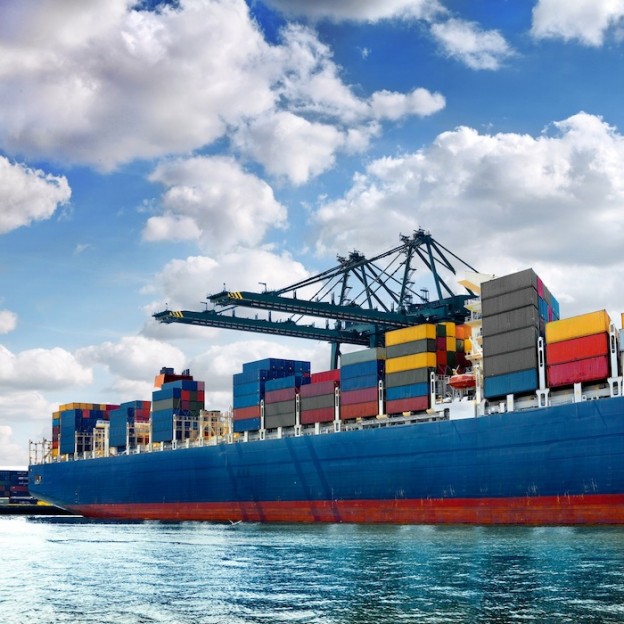For hundreds of years, before modern means of communication, ship captains were sent overseas to trade with merchants in other countries. Initially a ship would show up at a particular harbor and the crew would announce that they were ready to receive cargo for another port. For example when the Dutch started trading with Indonesia in the early 1600’s, a ship would drop anchor near one of the Spice Islands and offered to buy pepper and other local wares. In the early days a ship captain would pay cash for the goods and then load them on board. Once the cargo holds were full, or after the captain had ran out of money, the ship set sail for the return trip -for example to Amsterdam- where the goods would be sold for a handsome profit.
Later on, after trade had developed on a regular basis and after trading houses had set up shop overseas, a captain would issue a B/L to a local merchant for the goods received. The local merchant would take the B/L, plus his draft, to the local agent of the trading house and exchange his B/L + draft for cash. The trading house would send the B/L to the ultimate overseas buyer, who could claim the goods once the ship arrived. Sometimes it would take the ship a year or more to return to its homeport. Even 350 years ago, a year was a long time to sit on a B/L. Therefore the overseas buyer often resold the goods to somebody else by endorsing the B/L on the back, or he used the B/L as collateral to borrow funds from an international trading bank. In essence the B/L represented symbolic ownership of the actual goods. It is for that reason that a B/L is sometimes called “the key to a floating warehouse”.
While in the old days the B/L would usually arrive before the ship, nowadays the ship often arrives before the B/L has made its way through the banking system. This creates problems, since the captain is only allowed to deliver the cargo against presentation of an original B/L. If the “to order” B/L is not available and the captain delivers the cargo without it, and later on a genuine B/L holder shows up, the ship owner is legally obliged to indemnify the B/L holder for the full value of the cargo. For example, a very large crude oil tanker’s -based on the delivered (CIF) value- can amount to $200,000,000; all represented by a simple piece of paper.
If a tanker or bulk carrier captain shows up in the dead of night at some terminal, especially a public one, there are very few clues as to who will be the proper receiver if no original B/L has been presented. Ship owners are not clairvoyants and if no original B/L is presented, they should not have to bear the responsibility of mis-delivery of the goods. The cargo may have been bought and sold many times during the voyage without the ship owner knowing who the ultimate B/L holder is.
Some people labor under the mistaken belief that a Letter of Indemnity (LoI) will protect a carrier against mis-delivery w/o having received an original B/L. Even though many LoI forms are based on wording provided by Protection and Insurance (P&I) companies, they do not provide coverage. Without an iron-clad bank guarantee, such as a Standby L/C, a LoI is not worth the paper it is written on.
In the airline industry planes almost always arrive before the B/L does. However, there is no need to produce an original B/L, because airlines issue an Air Waybill, instead of an “to order” B/L (a document of title).
The difference between an “to order” B/L and a Waybill is that the latter one is non-negotiable. It is just a receipt and a contract of carriage and not a document of title. It cannot be traded to somebody else. When a Waybill is made out to a particular consignee, all the carrier has to do is verify the identity of the consignee and the goods will be delivered. Upon proper identification, the carrier no longer bears responsibility for the value of the goods; other than perhaps a claim for damage or shortage. This is in stark contrast to the risk an ocean carrier runs when they deliver the cargo without presentation of the “order” B/L.
A B/L with the following characteristics is a Waybill:
- When the B/L does not contain the words: “to order” or similar language
- When a B/L -before it is signed- is clearly marked: NON NEGOTIABLE
- A Straight or Named B/L is kind of a hybrid between an “to order” B/L and a Waybill
There is no longer a strict need for banks to require “to order” B/Ls. As mentioned above, almost without exception all airfreight cargoes are shipped on Air Waybills that are not documents of title. A bank may still require to be named as Waybill consignee, so an opener of an L/C does not run off with the goods by just identifying him or herself to the carrier. However, banks are extremely conservative when it comes to issuing a L/C. Some banks may have suffered losses from forged documents, but there are very few cases where a bank lost money because of Waybills instead of “to order” B/Ls.
Some people object to Waybills because they are non-negotiable and as such are NOT subject to the Hague or Hague-Visby Rules. However, it is very easy to have Waybills covered by the Hague-Visby Rules by simply stating so in the contract of carriage.




